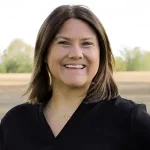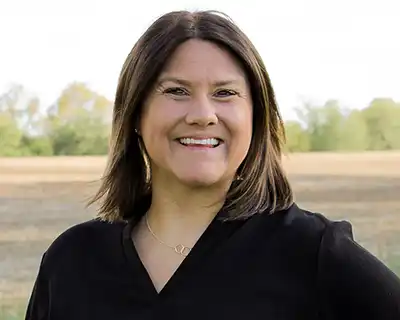One of the country’s leading practice implementers is bolstering its technical advisory capacity to improve resiliency and profitability for growers
Ducks Unlimited is globally recognized as one of the leaders in conservation with a focus on protecting, enhancing and restoring wetlands and waterfowl habitats. Their legacy emphasis on recreational lands has, in recent years, led the organization to explore the relationship that those lands have with working lands, and with those who work them.
Few know this relationship better than Mark Flaspohler, Ducks Unlimited’s Director of Conservation Programs, himself the product of a family farm in Central Missouri and a longtime waterfowl hunter.
“Agriculture and wildlife conservation can oftentimes be mutually inclusive and in many cases, support each other,” Flaspohler said. “To achieve our goals, it’s crucial to strike a balance between agricultural activities and wetland conservation. Sustainable farming practices that minimize the impact on wetlands can promote the coexistence of agriculture and wildlife.”
In a time where it is critical that working lands maintain and maximize productivity, Ducks Unlimited is leading the way in bringing historic funding opportunities for conservation agriculture to the growers that it works with. America’s Conservation Ag Movement visited with Flaspohler to discuss what agricultural conservation practices impact watershed and habitat management and how Ducks Unlimited is bringing both technical and financial resources to growers who enact those practices.

Conservation Programs, Ducks Unlimited
What are the key agricultural conservation practices that have the most impact on wildlife and wetlands conservation?
Sustainable farming practices that minimize the impact on wetlands can promote the coexistence of agriculture and wildlife. Practices like wetland buffers, crop rotation and reduced chemical use can help preserve wetland ecosystems while maintaining agricultural productivity. Most practices associated with regenerative agriculture can lead to ecological improvements that help support sustainable agriculture but also lead to positive impacts targeting wildlife and wetlands conservation. For example, soil health practices such as cover crops, reduced tillage, no-till and fieldstrips are all practices that target reductions in sedimentation and nutrient loads in priority watersheds, and ultimately the wetlands in which we work to restore.
By focusing on soil health practices, we are also helping to increase water quality benefits. Reduced sedimentation can also encourage more native food sources therefore increasing the habitat values in our more “traditional” projects.
If we are going to be able to scale practices like soil health and water quality, it is imperative that DU work more intently with agriculture producers while pursuing conservation-friendly practices that support sustainable farms and conserve wildlife and wetlands.
What are the ways in which Ducks Unlimited supports growers and producers in adopting conservation practices in their operations, and to maintaining profitability while doing so?
At Ducks Unlimited, we want to provide technical and financial assistance to landowners to help them maintain an economically strong operation. Our DU Team has worked diligently to secure public and private grants that have enabled DU to bring more experts and specialists on board who can work directly with producers based on their needs. These experts understand both wildlife conservation and sustainable agriculture. Our goal is to become trusted advisors to landowners as we work alongside them to provide technical assistance, management tools and implementation of sustainable practices and strategies on their farms and ranches. There are a lot of opportunities for producers, and DU team members work directly with producers, growers and landowners to help them make the best decisions to achieve their long-term goals and objectives.
Partnering with DU is a tremendous opportunity for farmers and growers to connect with our experts to improve their sustainability while maintaining profitable farming operations. Agriculture practices are steadily changing and evolving, and it is our goal to help producers keep up with the change and thrive in this new era of agriculture.
A big area of emphasis for growers this year is in drought mitigation and how to manage their operations during times of changing climate. In what ways are Ducks Unlimited uniquely poised to provide expertise in that area? How are you putting that expertise to work for growers and producers?
DU understands that in the private lands space, it starts with “boots-on-the-ground.” Landowners often need a trusted advisor who can help them navigate the wide array of conservation practices and programs that can best help them achieve their goals. DU is working to expand our technical capacity in this space to address those needs. Agricultural and working lands directly benefit from DU’s mission to protect, enhance and restore wetlands, as wetlands and watersheds play a significant role in maintaining water quality, flow and supply. Wetlands act as natural water filters, removing pollutants and excess nutrient runoff while also serving as buffers against flooding by absorbing and slowing the flow of excess water. Ensuring that our wetland habitats stay healthy and productive may also include supporting more indirect work in the watershed. The practices that DU is working to deliver not only improve water and wildlife, but it also helps these working lands become more resilient to climatic extremes like flooding and drought.
Last year, Ducks Unlimited entered into a partnership to incentivize growers to implement cover crop practices on their operations. The goal of the Ducks Unlimited Midwest Cover Crop Initiative was to implement 175,000 acres of cover crops across three states. What impact did that program have?
This soil health incentive program opened the doors for DU staff to have direct conversations with nearly 200 producers across the states of Indiana, Michigan and Ohio. That first conversation is the beginning of a new relationship between DU and that producer. In my mind, that alone was a huge win all by itself – because we want to work one-on-one with producers to serve as a trusted advisor to guide them through the sustainable agriculture process. The program was designed to encourage producers to plant cover crops to improve water quality and wildlife habitat, but other benefits of the program included improved soil health, decreased soil erosion and reduced nutrient runoff.
As an implementor for a host of projects, how would you characterize the current opportunities for incentive-based conservation for producers? What steps can they take to align their operation with the various programs available to them?
We are currently seeing unprecedented investment in conservation opportunities on private working lands, and the opportunity for producers to address their goals and objectives has never been higher. The best way to learn about these opportunities is to reach out to a conservation partner (USDA, DU, and others) and set up a site visit with a private lands biologist. DU, along with other conservation organizations, want producers to see us as a trusted advisor. As a partner, our main goal is to help producers navigate the options that provide the best solutions for their lands. We are available to help the producer achieve their goals and can often identify opportunities for further assistance.



